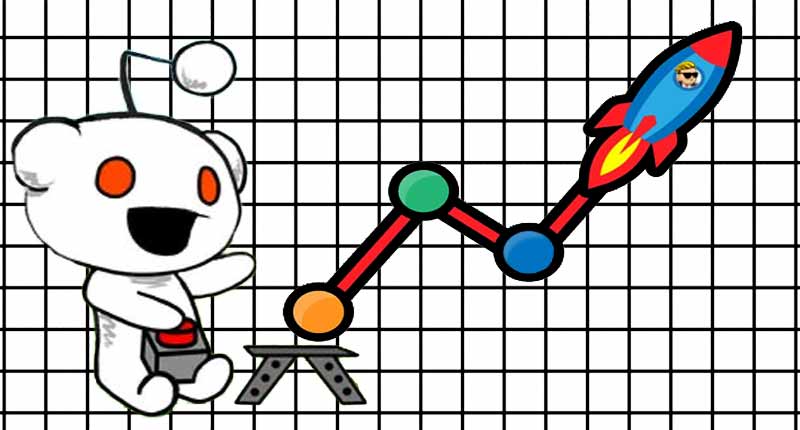Like the rest of the world, I’ve watched with amazement the unfolding drama between Wall Street and the retail investors (the WallStreetBets bros) of Reddit this week. The excitement of the run-up in stocks like $GME, $AMC and others followed by the retaliation of the Street has been absolutely fascinating.
For those under a rock this week, the story goes like this:
- GameStop is a mall-based retailer, whose inevitable demise is clear.
- They are a legacy brick-and-mortar business, selling physical copies of video games in an age of COVID, e-commerce, mall closures, and digital software distribution.
- Hedge funds, notably Melvin Capital, have picked up on this and have shorted $GME. Like REALLY shorted $GME.
- They have shorted more shares of GameStop than actually exist. 40% more short shares relative to all outstanding shares. Assuming that 75% of shares are institutionally owned or not actively traded, the real short position is likely 300-500% of the float. This is, by any rational measure, absurd.
- The Reddit community r/WallStreetBets starts to dig in and asks some simple questions:
- How can you short 3-5 TIMES the number of actively-traded shares of a company – even one as troubled as GameStop appears to be?
- How can you sell more shares of a stock than shares actually exist?
- What would happen if someone forced institutional capital’s hand?
- Could you cause a “short squeeze”, in which Melvin Capital et al are forced to buy shares of $GME at an increasingly higher price in order to cover their short position?
And what happened next is now history – and yet somehow still evolving.
Retail investors, led by the Lost Boys of r/WallStreetBets, have run the price of $GME up by some 2000%+ during January by calling the bluff (or at the least severe oversight) of several Wall Street hedge funds. Melvin Capital has had to borrow nearly $3B in order to stay solvent. Their long-term viability is in question. Major brokerage platforms have ceased trading in $GME and other high-volatility stocks. More disturbingly, the trading app Robinhood has preemptively sold stock at a clearing price of their choosing(!) without the consent of their traders. There is already a class-action lawsuit pending.
As I watched this real-life drama unfold this week, the thing that struck me, over and over again, was how WRONG all of the pundits were. In order to oppose the rise of the many, Wall Street was forced to take an untenable position: that the game isn’t rigged. But of COURSE the game is rigged.
This exchange on CNBC’s Halftime Report between host Scott Wapner and Social Capital’s Chamath Palihapitiya is absolutely must-see TV:
Or how about this spirited back-and-forth between Mark Cuban and resident CNBC chucklehead / Wall Street apologist Joe Kernen:
No matter the ultimate outcome, the fallout of this frantic week will be long-lasting, with wide-ranging effects. It has laid bare the dichotomy between Wall Street and Main Street. Even when playing by the established rules of the stock market and exposing the reckless trades of multi-billion dollar funds, the small guy has once again learned that the rich and powerful can simply re-write the rules mid-game in their inevitable favor. The game is not only rigged, it can’t be won by anyone but the wealthy and well-connected. Worse, the powers-that-be (the government, brokerage houses, institutional money, the TV punditry), have all been quick to tsk-tsk the social media ne’er-do-wells and scold them as rogue actors somehow manipulating the markets in their favor. In fact, this financial “mob” is only doing what Wall Street big money has been doing to the little guy for decades now – but better.
The Lessons
I played along this week. I bought a few dozen shares of $AMC. It felt like playing the lottery – no expectations to win, but you certainly can’t win if you don’t play! Easy come, easy go as they say…
But in all seriousness, there are lessons to be learned from this week’s wisdom of crowds. Sadly, it highlights the ever-widening gap between the haves and have-nots in America. It continues to erode our confidence in institutions and their diminished role in our society. I think we’ll see an accelerated adoption of Bitcoin and other alternative cryptocurrencies as a result of the revealed shell game of Wall Street and the nonstop money pumping by the Fed. It’s the law of unintended consequences. When you flood the market with money, disenfranchise enormous segments of the population, and let social and economic inequity fester, wacky things are bound to happen.
The most important lesson from the great GameStop uprising of 2021 though is that the system is fixed. Corrupt. Fraudulent. We, as the little guy investor, must seize control of our financial destiny. The innate falsehood we’ve all been told ad nauseum: “go to college, max out your 401(k), be a good, tireless worker for 50 years and then retire at 70” is not only outdated, it has the potential to be downright dangerous. Wall Street is a house of cards that can easily be toppled by a few thousand knuckleheads with a social media account and trading app.
This week, the stock market has been revealed -yet again- as a playground of the rich. High-frequency trades, bailouts, inside deals, pre-IPO riches, exclusive investments — all of these things are designed to keep THEM rich and YOU poor. THEM powerful and YOU powerless. “Place your hard-earned income in this index fund and pay no attention to the man behind the curtain. Oh, and if you try to play the same game that WE play, we’ll change the game entirely. May the odds be ever in your favor”.
Think critically. Act intelligently. Seize the reigns of your financial future. If you don’t, no one else will.


